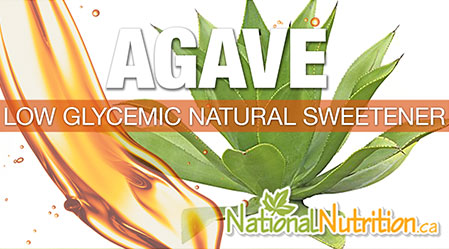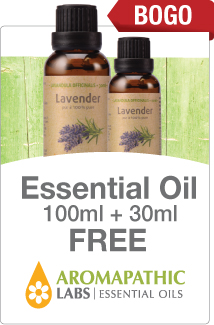
Add agave to coffee or tea for a sweet taste that won’t spike your blood sugar.
Agave Syrup
Updated Apr. 18th, 2024 | Read Time: 5 Minutes | What You Will Learn:
- What is Agave Syrup?
- How Does Agave Work?
- What is Agave Nectar Used For?
- Controversies Surrounding Agave
- How Do You Use Agave Syrup?
- Replacing Sugar With Agave:
- Agave Syrup FAQs
- What is Agave Syrup?
- How Do I Use Agave Syrup?
- Where Can I Buy Agave Syrup in Canada?
- Is Agave Safer Than Sugar?
Agave syrup is a popular natural sweetener that has been the subject of recent controversy. Read on to learn why agave is a great alternative to sugar, what the controversy is all about and how to use it as a substitute in recipes.
What is Agave Syrup?
Agave (also called agave nectar) is a natural alternative to sugar. It is made from the Agave tequilana plant (commonly known as Blue Agave), found in Southern Mexico. Yes, it’s the same plant as tequila. After growing for up to 7 years, the core of the plant is harvested. Then it's pressed and filtered to release its inulin-rich juice.
Agave must undergo one more processing step to release its sweetness. It is either heated to 161°F, or it undergoes a basic processing step using low heat or enzymatic reactions. This step transforms the inulin into fructose, which is a simple sugar.
How Does Agave Work?
Agave is a natural source of inulin. Inulin is a dietary fibre that contains complex carbohydrates. Heat converts the inulin into fructose and glucose once heated. Fructose and glucose are simple sugars that give agave syrup its sweetness. The makeup of agave syrup is approximately 75% fructose and 20% glucose with small amounts of inulin.
The high fructose content in agave makes it “low-glycemic.” Having a lower glycemic index means that agave is healthier and will not cause a spike in your blood sugar. Nevertheless, agave syrup is still a natural sugar and should not be confused with artificial or non-nutritive sweeteners. One teaspoon of agave has approximately 20 calories, whereas one teaspoon of table sugar has about 15 calories. Moderation is important when using any natural sugar.
Interestingly, some companies have developed agave sugar, which is a sugar crystal form of agave. Agave sugar is processed differently than agave syrup to preserve the inulin. Gentle hydrolysis converts the inulin to oligofructose, a type of fibre. The oligofructose is then crystallized and milled into a fine consistency. Oligofructose is low-glycemic because it is not broken down in the small intestine. Oligofructose is also a prebiotic, which is a type of fibre that feeds the healthy bacteria in the colon. Studies show that oligofructose stimulates the growth of intestinal bifidobacteria.
What is Agave Nectar Used For?
Agave is used as a natural sweetener. It's an excellent alternative to sugar or artificial sweeteners. Agave is low-glycemic. This makes it helpful if you are following a low-glycemic diet or are diabetic, or suffer from hypoglycemia (low blood sugar) and insulin resistance. It can be helpful in a weight management program because low glycemic foods are less likely to trigger the body to store fat. Remember that agave is a natural sugar not meant for indiscriminate consumption. That said, you can use agave nectar as a substitute for sugar. It works well in healthy recipes if you are trying to lose weight.
Interestingly, some cane sugars are filtered using bone char, which is animal-based bone charcoal. The processing of agave does not use bone char and is entirely vegan. This makes agave syrup an excellent choice for those whose diets and lifestyle choices exclude all animal products.
Controversies Surrounding Agave
Agave has been deemed controversial because it has been compared to high fructose corn syrup (HFCS). HFCS has varying ratios of fructose to glucose and is usually a mixture of nearly equal amounts of fructose and glucose. Corn syrup is genetically modified (GMO). It then undergoes highly secretive enzymatic processing techniques to convert the naturally occurring sucrose in corn syrup to fructose and glucose. HFCS contains fructose that is rapidly absorbed into the bloodstream. It then goes right to the liver where it produces triglycerides and cholesterol. This process causes a “fatty liver”, which has become an epidemic in North America. HFCS also depletes ATP, which is the molecule responsible for cellular energy and maintaining the health of our intestinal walls. If that is not disturbing enough, HFCS may contain contaminants like mercury!
The main problem with HFCS is its widespread use in processed foods and sugary beverages. Read your labels because HFCS is hidden in most packaged foods! So as a population, we are getting regular, incredibly high doses of HFCS. This contributes to obesity, increased appetite, cardiovascular disease and diabetes, and more.
Agave goes through minimal processing (only one step) and contains a naturally occurring fructose compared to the chemically processed fructose found in HFCS. This means that the fructose in agave behaves differently than the fructose in high fructose corn syrup.
Agave is comparable to honey and maple syrup, which have naturally occurring blends of fructose and glucose. Also, agave is not genetically modified. It is not a crop subsidized by the U.S. government, like corn. The agave industry is not putting small farms out of business.
How Do You Use Agave Syrup?
You can find agave in syrup form. However, some companies have a sugar crystal form available. Agave syrup is comparable to honey and maple syrup. Its consistency is thinner than honey but thicker than maple syrup. In terms of taste, honey has a floral flavour, while maple syrup has a more woody-sweet maple flavour. Agave’s flavour is purer than honey and maple syrup. This makes it an excellent substitute for the simple sweet taste of traditional sugar. Also, agave is 1.5 times sweeter than sugar.
Replacing Sugar With Agave:
- Honey and maple syrup – replace 1 cup of either honey or maple syrup with one cup of agave. You can use a 1:1 ratio with this substitution.
- Corn syrup – use ½ to 1/3 cup of agave for one cup of corn syrup, and increase other liquids in the recipe up to 1/3 of a cup.
- White sugar – substitute one cup of white sugar with 2/3 of a cup of agave and reduce other liquids by ¼ to 1/3 of a cup.
- Brown sugar – use the same substitution for white sugar, however, don’t reduce the liquids in the recipe because brown sugar has higher moisture content.
Note: Agave syrup may cause baked items to brown more quickly. You may have to reduce the heat by 15-25 degrees.
Agave Syrup FAQs
What is Agave Syrup?
Agave is a natural sweetener. You can use it instead of sugar. It won't impact your blood sugar like regular sugar, which is why it is considered low-glycemic.
How Do I Use Agave Syrup?
You can substitute your favourite sugar with agave nectar. Take a look at the notes above for substituting agave in baking and more.
Where Can I Buy Agave Syrup in Canada?
You can find agave syrup at most health food stores.
Is Agave Safer Than Sugar?
The low-glycemic properties of agave make it healthier than sugar because it won't spike your blood sugar like regular sugar will.






















Agave is great for us. It has lots of nutrients in it and a perfect way to replace sugar. It is 25% sweeter than sugar. I use raw agave nectar in my Jam's it tastes perfect!! Also instead of white sugar in cookies and other things that can use a little sweetener. Can even put it in a shake or smoothie to make it taste better.
Hello Astrid,
Indeed, Agave is a great natural sweetener and replacement for sugar. It would be delicious in homemade jam!
Have a healthy day.
Agave is very useful for sweetening things and unlike refined sugar, doesn't wreak havoc on your immune system. I had no idea it takes 5-7 years for a plant to grow before it's harvested! Wow! I appreciate how NN addressed the controversy behind agave as compared to High Fructose Corn Syrup and explained why it's not the same thing.
Hello Stephanie,
Agave is a great alternative to sugar and sweetener; however, yes, it takes a long time for the plant to fully grow and mature. We learn something new every day!
Stay healthy & well.
I personally really enjoy using agave as a sweetener in smoothies or oatmeal, I love how it is natural and has a lot of great health benefits. I find it really interesting that it is being compared to high fructose corn syrup, I did not know that before this article, so it was nice to read how high fructose corn syrup is more modified than agave is and of course with anything it is important to have it with moderation but I love how this can be a substitute for things like high fructose corn syrup!
Hello,
Agave is a great alternative to fructose, corn syrup, other artificial sweeteners or sugars. We think you'd also enjoy this article to learn more about sugar alternatives:
https://www.nationalnutrition.ca/articles/supplements/sugar-and-alternatives/
Have a healthy day!
I’ve used Aguave for years, An excellent product!
Hello Sharon,
Thanks for sharing, Agave is a delicious alternative to sugar! We love how versatile it is. If you'd like to learn about more alternatives to table sugar, check out this article on our site too:
https://www.nationalnutrition.ca/articles/supplements/sugar-artificial-sweeteners-natural-sources/
Have a healthy day!
This is an excellent sugar substitute! I use it in cooking or just as a sweetener on berries or coffee etc.
Hello Sharon,
Yes! Agave isn't just used for making tequila, it is a great natural substitute for sugar! You could replace the xylitol in this recipe with agave to make healthy and delicious breakfast cookies:
https://www.nationalnutrition.ca/articles/healthy-recipes/apple-cinnamon-oatmeal-cookies/
Enjoy!
I’ve used it for years. Great product!
Hello, Sharon,
Thank you for sharing. Discover new recipes to use agave in here: https://www.nationalnutrition.ca/articles/healthy-recipes/
Stay healthy